Design for Agricultural Soil Health Information
Purdue University IRB Protocol #: 2021-1511

Sign up for Community Calls on Last Wednesday of Every Month @ 1pm.
The DASHI Project Vision
To distill the essence of soil health information practices,
that enables us to (re)design a family of technologies,
forming the backbone of a range of delightful user experiences.



*Dashi, the word, also refers to
a reconfigurable family of Japanese soup stocks
that form the backbone of a range of delightful dishes.
Study Goals
In the short term, we seek to understand how farmers and farm workers manage soil health and agricultural data and use digital tech for agricultural management.
- How is soil health data collected, analysed, used and stored?
- What tools aid farmers in these tasks?
- How do individuals interpret and work towards “soil health”?
Long term:
In the long term, we seek to support farmers and farm workers in their practice of regenerative agriculture, improvement of soil health, and management of critical ag data.
Study Design

Who is eligible to participate?
- Farm is located in the U.S. and raises animals and/or crops for commercial sale.
- Farms that participate in soil testing and use data to make decisions about soil health.
- Farmers or farm managers who oversees the process of soil testing and data management.
- Participants with technical capability to attend a video-chat interview.
Coverage Criteria
Regions
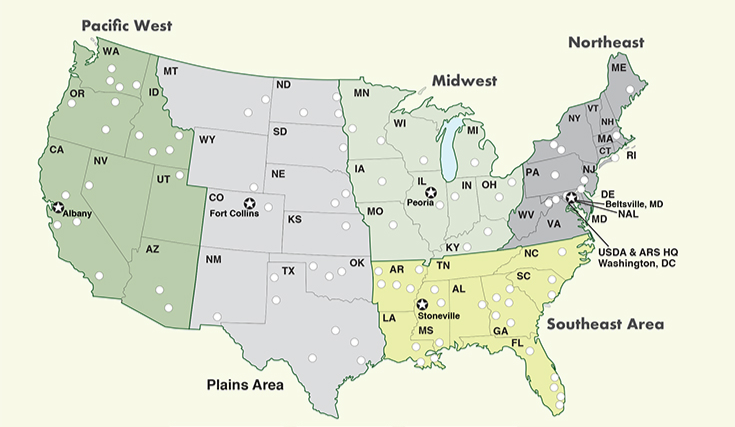
We have stratified our recruitment geographically, across USDA service regions. We plan to speak with at least 10 growers from each of five regions of the United States, defined by the United States Department of Agriculture, Agricultural Research Service’s service regions (listed below).
- Northeast Area, states include: Connecticut, Maine, Massachusetts, New Hampshire, Rhode Island, Vermont, New Jersey, New York, Pennsylvania, Virginia, District of Columbia, West Virginia, Delaware, Maryland
- Midwest Area, states include: Illinois, Indiana, Michigan, Ohio, Wisconsin, Iowa, Minnesota, Missouri, Kentucky
- Southeast Area, states include: Florida, Georgia, North Carolina, South Carolina, Alabama, Mississippi, Tennessee, Arkansas, Louisiana, Puerto Rico
- Plains Area, states include: Kansas, Nebraska, North Dakota, South Dakota, Colorado, Montana, Texas, Oklahoma, New Mexico, Wyoming
- Pacific West Area, states include: Arizona, Idaho, Nevada, Utah, Alaska, California, Hawaii, Oregon, Washington
Crops and Livestock
We need participants from a diverse sample of agricultural systems where crops are grown and livestock raised. The resulting categories, based on a compilation of USDA classifications, are:
- Field Crops (e.g. corn, wheat, cotton and oil-bearing crops)
- Field & Grass Seeds, Forage and Hay (e.g. alfalfa, fescue and ryegrass)
- Fruit & Tree Nuts (e.g. oranges, pistachios and avocados)
- Vegetables (e.g. greens, melons and sweet corn)
- Horticulture (e.g. cut flowers, foliage plants and mushrooms)
- Livestock (e.g. cattle, chickens, and pigs)
Tenure Group
In each region, we will further stratify our recruitment based on Soil Health Tenure – that is, how long a grower has been engaging in agricultural practices that improve soil health outcomes and regenerate the land on which they farm.
Note: this does not require a grower to have been working on the same piece of land for that duration – only that they have been engaged in regenerative agriculture for these periods of time. Thus, in each region, we aim to speak with at least 2 growers from each tenure group, i.e., self-reported years of experience with soil health practices. The tenure groups are as follows:
- Less than 5 years
- 5-10 years
- 11-15 years
- 16-20 years
- 21-25 years
- More than 25 years
Interviews
A ~2 hour discussion, incl. mapping of a typical soil health information “event”.
Critical Decision Making Method, aims at identifying major decision points through retrospection. Used to study “work and decision making of experts in naturalistic work environments” (Mannonen et al., 2014).
- Participants will be asked to reflect on a previous case when they conducted or were involved in a soil health information event (collect, structure, manage, and use soil health data).
- Participants will then form a timeline of actions along with the researcher, which involves major checkpoints where critical decisions were made regarding the soil health process.
- Further probing by the researcher may be done, specifically on artifacts used (‘Artifact Ecosystem’), including the digital technology employed.
Interview anonymity options:
- Public interview, recorded and open to the public (e.g., summer 2021 sessions)
- Public One-on-One interviews, recorded and made available after the call
- Private One-on-One interviews, recorded, but not made available
Interview Structure:
- Farm Background & History
- Soil Health Management Practices
- Digging into Soil Health
- Decision Point Probing
- Broader Reflections on Regenerative Agriculture & Soil Health
- Outro
Cultural Probes
A set of artifacts mailed to participants for reflection and art-making during their soil health information events over a period of 4 months.
We will mail participants a cultural probe (Gaver et al., 1999) package containing materials for to capture data, make art, and engage in reflection activities.
- This probe will provide insight into participants’ process and context as they engage in soil health management and agricultural data management activities.
- The materials are designed to promote a critical and reflective environment for the participant.

Probe package includes:
- Probe package includes:
- A disposable camera
- A diary, for structured and open-ended reflections
- Index cards with prompts for reflection
- Map-making tools for contextual mapping activities
- Return mailing kit
Participatory Design Workshops
Participants will attend one virtual(?) workshop each, with 10 participants per workshop.
After data from the interviews and the cultural probes are analyzed, we will host three workshops. The tentative structure is as follows:
- Introductions
- Activity 1 – ID Cards
- Activity 2 – Building Artifact Ecology
- Activity 3 – Concept Mockups
- Activity 4 – Reflections
Help us Reach Out!
Sign up for the Mailing List
If you’d like to learn more about the project more broadly, feel free to just sign up for our mailing list (~1 email per month). We will invite you to community calls (space for project feedback, input, and hear about project progress.)
Sign up for Community Calls on Last Wednesday of Every Month @ 1pm.
Research Team
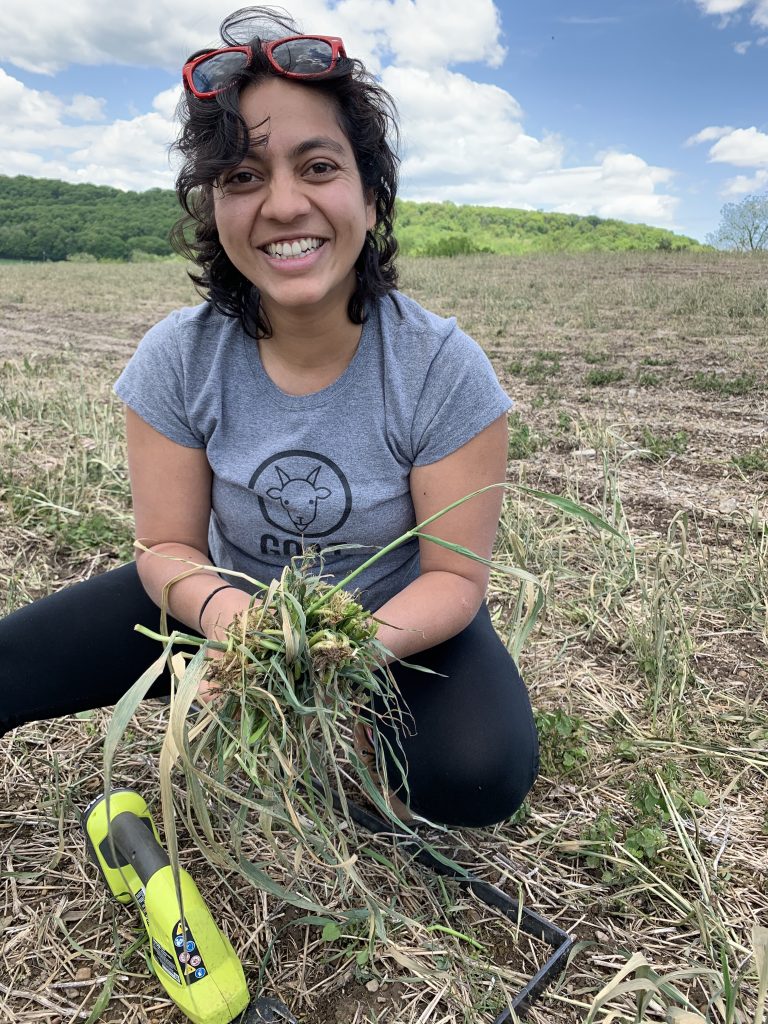
Ankita Raturi, Asst. Professor, Agricultural Informatics 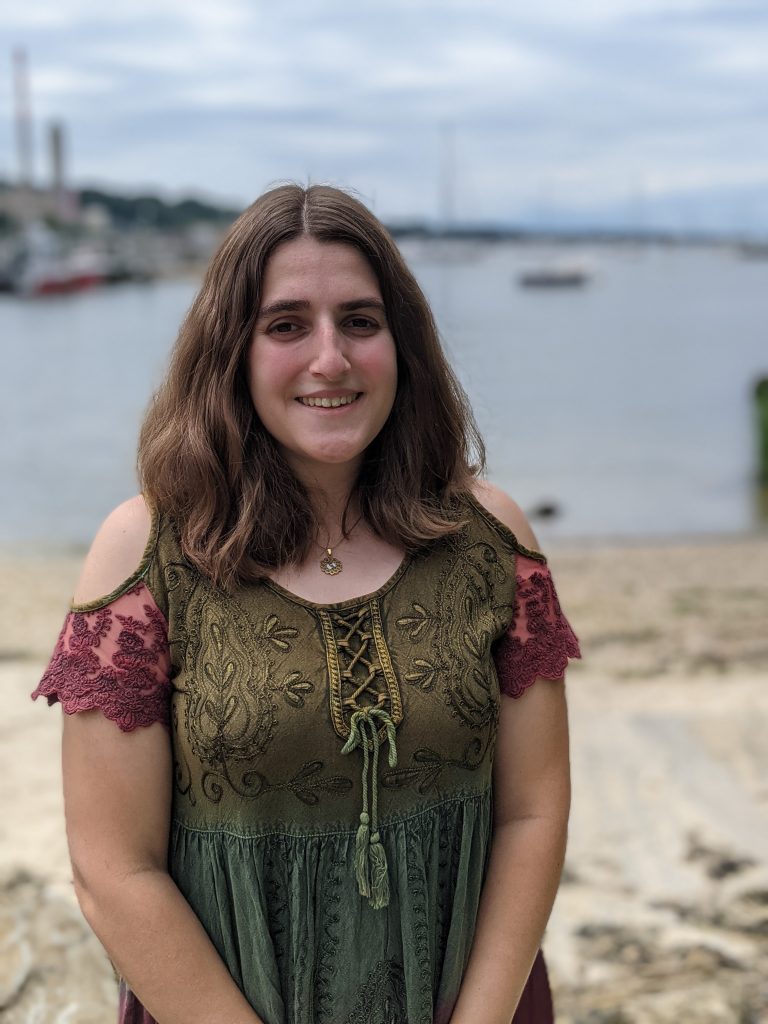
Jillian Arber, Graduate Student Researcher, Plant Sciences 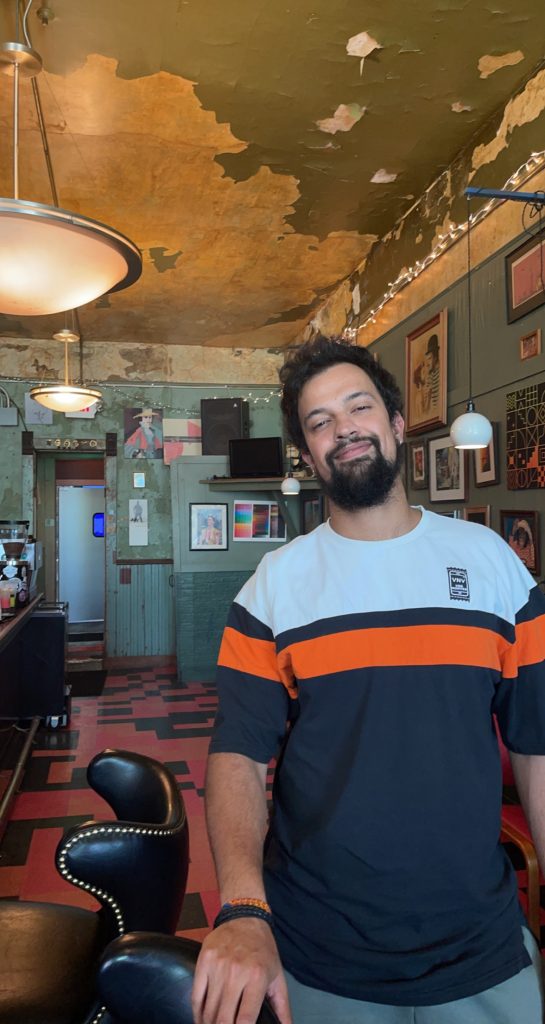
Prateek Mondan, Graduate Student Researcher, Design 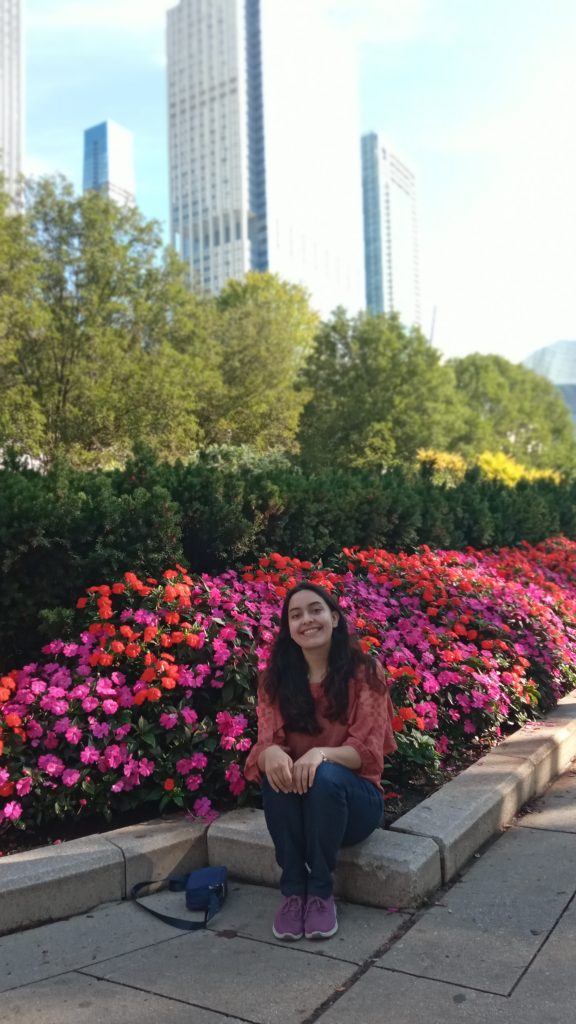
Claudia Becerra Rativa, Research Assistant, Soil Sciences
Who can I contact if I have questions about the study?
If you have questions, comments or concerns about this research project, you can talk to one of the researchers. Please contact:
Point of Contact:
Jillian Arber
jarber@purdue.edu
Primary Investigator:
Dr. Ankita Raturi
(714) 675-0047
ankita@purdue.edu
